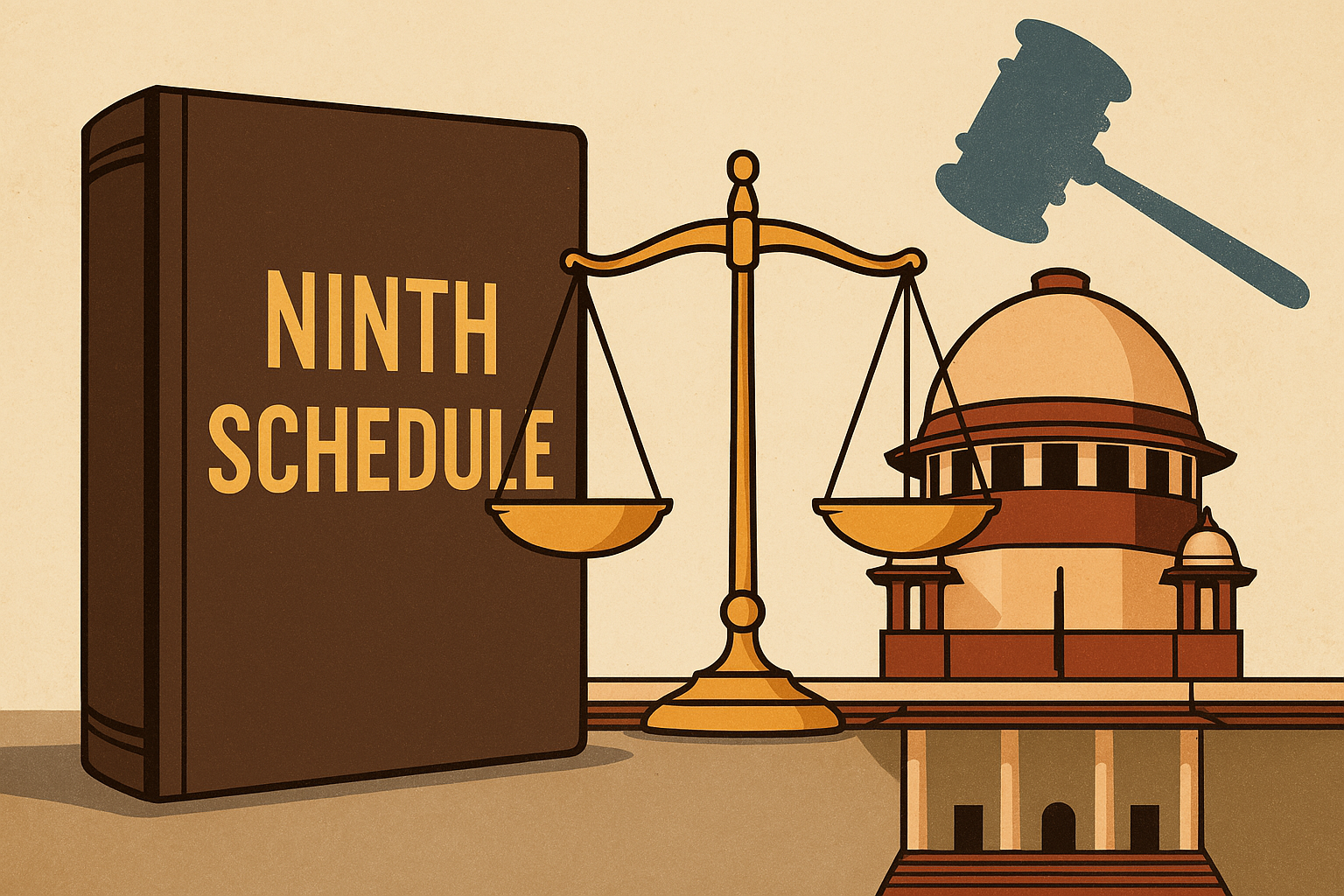I.R. Coelho v. State of Tamil Nadu (2007) – Judicial Review Cannot Be Taken Away
Summary:
This judgment reaffirmed that any law—even if placed in the Ninth Schedule—is open to judicial review if it violates the basic structure of the Constitution.
Background:
The Ninth Schedule was originally introduced by the First Constitutional Amendment (1951) to protect land reform laws from being struck down by courts for violating Fundamental Rights. Laws placed in this schedule were shielded from judicial review under Article 31B.
Over the decades, however, Parliament began placing all kinds of laws—many unrelated to land reforms—under the Ninth Schedule. Critics argued that this was being misused to bypass the Constitution, avoid scrutiny, and suppress Fundamental Rights.
In I.R. Coelho v. State of Tamil Nadu, the Supreme Court was asked to decide: Can Parliament put any law in the Ninth Schedule and make it immune from judicial review, even if it violates fundamental rights?
Legal Issues Raised:
-
Are laws placed in the Ninth Schedule after the Kesavananda Bharati judgment (1973) immune from judicial review?
-
Can laws that violate Fundamental Rights be protected by simply adding them to the Ninth Schedule?
-
Is judicial review part of the basic structure of the Constitution?
Supreme Court’s Key Observations:
-
Judicial Review is Part of the Basic Structure: The Court ruled that judicial review—the power of the courts to examine laws for their constitutionality—is an essential feature of the Constitution and cannot be removed or diluted.
-
Ninth Schedule Not a Safe Haven: Any law placed in the Ninth Schedule after 24 April 1973 (the date of the Kesavananda Bharati judgment) must pass the basic structure test. If it violates core constitutional values, it can be struck down.
-
Protection Is Not Automatic: Just because a law is in the Ninth Schedule doesn’t mean it’s automatically valid. It will be tested for compliance with Fundamental Rights and basic structure principles like equality, freedom, and rule of law.
Impact of the Judgment:
This ruling placed a constitutional check on Parliament’s power. It sent a clear message: no law can escape judicial scrutiny, even if shielded by the Ninth Schedule. The decision upheld the sanctity of Fundamental Rights and strengthened the role of the judiciary as the protector of the Constitution.
It also put an end to the trend of misusing the Ninth Schedule to give unconstitutional laws blanket protection, ensuring a balance between legislative intent and constitutional values.

